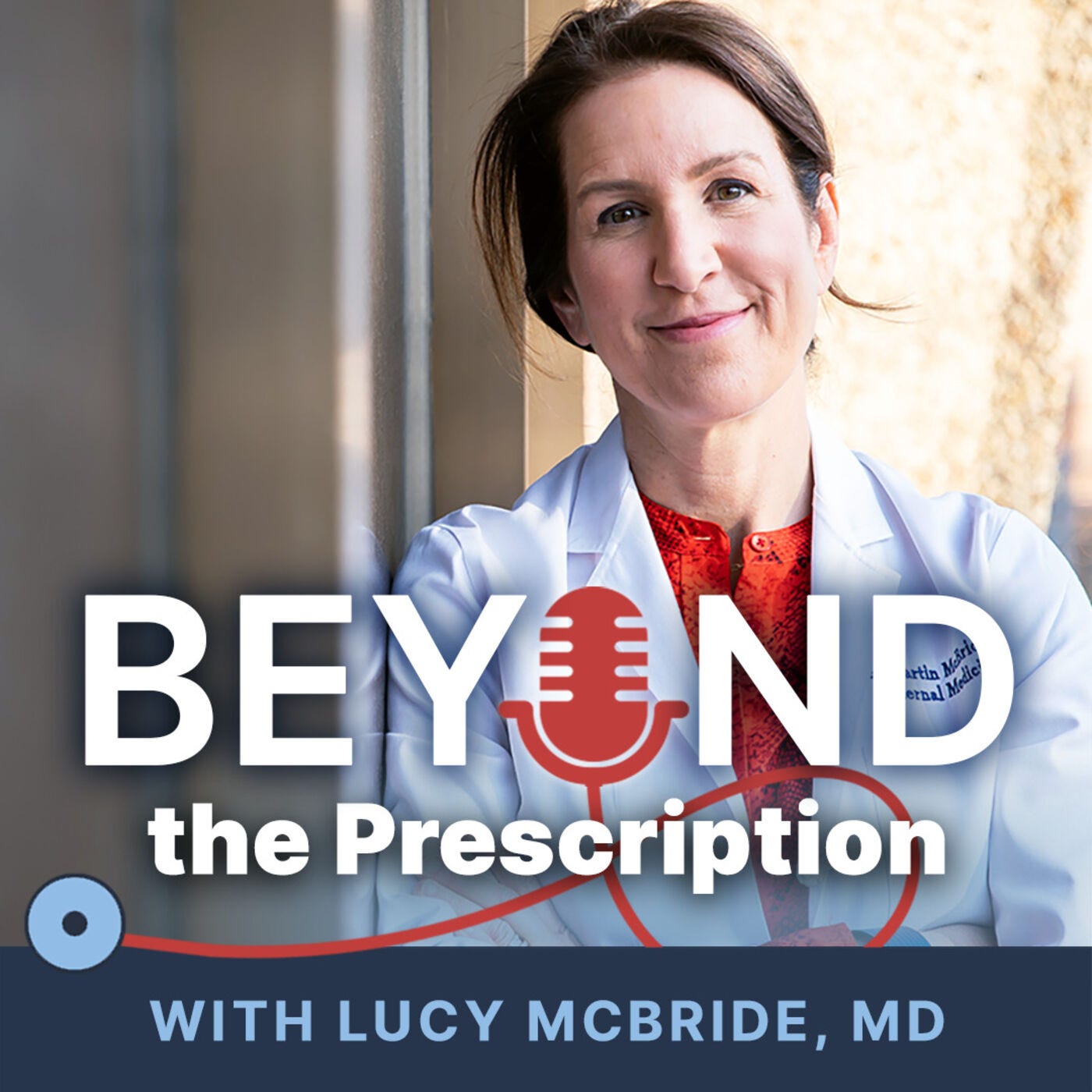Episode Description
Episode Summary
In this episode, Dr. Lucy McBride welcomes cognitive neuroscientist Dr. Julie Fratantoni to discuss practical strategies for protecting and improving cognition. There’s a fundamental disconnect between modern lifestyle patterns and optimal brain health: while our culture celebrates multitasking, passive consumption, and constant stimulation, the neuroscience reveals that our brains thrive on focused attention, active engagement, and purposeful challenge.
Key Concepts
Active vs. Passive Engagement with Information & Technology
* Dr. Fratantoni discusses recent research showing passive AI use creates "cognitive debt" by bypassing memory encoding and reducing creativity
* Study found 15 of 18 participants who used ChatGPT couldn't recall a single sentence from essays they'd just written with AI assistance
* Using your brain first before incorporating tools requires engaging through critical thinking and connecting new knowledge to existing information
* Always close down and repeat back what you learned, either aloud or in writing, to consolidate information
Emotion Regulation & Stress Recovery
* Dr. Fratantoni advocates for stress “recovery" rather than stress management, focusing on bouncing back to keep the prefrontal cortex online
* The “physiological sigh” involves one full inhale, pause, extra sip of air, then full exhale through mouth to activate parasympathetic nervous system
* Reappraisal strategies include reframing anxiety as excitement or considering alternative explanations for ambiguous social situations
* Studies show reappraisal reduces amygdala activity, increases prefrontal cortex activity, and improves heart rate variability and telomere length
* Breathing patterns directly affect blood oxygen/carbon dioxide ratios, modulating norepinephrine production and focus levels
Focus & Attention Training in a Distracted World
* Modern digital environments work against natural attention patterns, requiring strategies to rebuild focus capacity
* Multitasking is actually rapid task-switching that increases brain stress and reduces performance
* Simple tally systems to track interruptions build consciousness of attention patterns and reduce their frequency through awareness
* Start with 5-10 minutes of focused work without distractions, then incrementally build this "focus muscle" over time
* Memory formation requires both attention and encoding time, so constant busyness prevents proper memory consolidation
“Hormesis” & Finding the Right Level of Challenge
* Dr. Frattantoni introduces hormesis for cognitive health—moderate stress benefits the brain while extremes become detrimental
* Research with 12,000+ people found low to moderate stress induces cognitive benefits that promote resilience
* The right challenge level varies by individual interests, capabilities, and circumstances, requiring self-assessment over universal prescriptions
* Examples include learning languages, dance classes, martial arts, or hobbies requiring ongoing skill development
* Neither overwhelming stress nor complete lack of challenge serves cognitive health
Flexible Thinking & Perspective-Taking
* This executive function involves shifting between viewpoints, adapting to circumstances, and maintaining curiosity about others' experiences
* Cognitive flexibility functions like physical flexibility—enough structure to be sturdy but adaptable enough to avoid breakage
* Taking different perspectives activates multiple brain regions and reduces inflammation in healthcare interactions
* Learning to disagree while maintaining emotional regulation and curiosity strengthens multiple cognitive systems simultaneously
* Having difficult conversations while disagreeing represents one of the most challenging tasks for the brain
Purpose and Meaning as Cognitive Protection
* Longitudinal research shows having life purpose provides significant protection against cognitive decline
* Study of 11,000+ older adults found purpose protective against cognitive decline regardless of other health variables
* Purpose doesn't require grand accomplishments—can be simple as tending gardens or contributing to community
* Dr. Fratantoni suggests a two-minute "personal manifesto" exercise to clarify core values and life direction
The Upshot
Dr. McBride and Dr. Fratantoni make the case that conscious attention to cognitive health isn't just personally beneficial—it's essential for redefining how we age and challenging the assumption that cognitive decline is inevitable.
Get full access to Are You Okay? at lucymcbride.substack.com/subscribe
